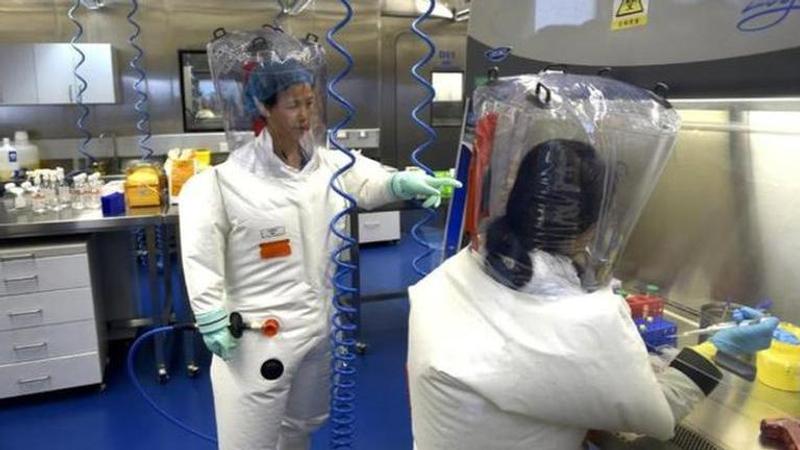Published 19:24 IST, December 15th 2022
COVID-19's origins under scanner again as WHO seeks data from China; All you must know
The head of the World Health Organisation (WHO), Tedros Ghebreyesus, has called on China to share data, so that WHO can probe the origins of COVID-19.

The head of the World Health Organisation (WHO) has called on China to share data, so that WHO can probe the origins of COVID-19. "We continue to call on China to share the data and conduct the studies that we have requested, to better understand the origins of this virus," WHO's head said, as per the transcript on WHO's website. This is not the first time WHO's head Tedros Adhanom Ghebreyesus is requesting China to share data. WHO's head has requested China to increase transparency about the initial days of COVID-19 by allowing greater access to labs. As of now, there are primarily three theories about the origins of COVID-19.
The first theory, most favoured by China, is that the virus made a natural zoonotic jump from an animal species into human beings. What is a zoonotic jump? Zoonotic jump refers to the transfer of a virus from an animal to a human. This can happen through direct contact with an infected animal or through indirect means, such as consuming contaminated food or water. Zoonotic viruses can cause a range of illnesses in humans, from mild flu-like symptoms to more severe diseases such as Ebola and SARS. These viruses can have serious consequences for both human health and the global economy.
The second theory
The second theory is that the virus infected a human being whilst a laboratory or field study of coronaviruses found in animals was being carried out. What are coronaviruses? Coronaviruses are a large family of viruses that can cause illness in animals and humans. In humans, they can cause respiratory infections ranging from the common cold to more severe diseases such as Middle East Respiratory Syndrome (MERS) and Severe Acute Respiratory Syndrome (SARS). The exact origins of coronaviruses are not well understood, but they are thought to have originated in animals and then jumped to humans. There are many different types of coronaviruses, including some that are common and cause mild illness, and others that are rare and can be deadly. This theory claims that a study was being conducted to understand the origins of coronavirus, when an accident occured.
The third theory
The third theory is the one that was initially dismissed as a conspiracy theory, but it is one that many serious scientists are not ruling out is that the virus was "genetically engineered" during a gain of function research. What is the gain of function research? Gain-of-function research refers to scientific studies that aim to enhance the abilities or characteristics of a biological agent, such as a virus. This type of research can involve modifying a virus to make it more transmissible, more virulent, or able to infect a new host species. The goal of gain-of-function research is to better understand how biological agents work and to develop countermeasures against them, such as vaccines or treatments.
Risks of gain of function research
Gain-of-function research carries significant risks. Because it involves manipulating potentially dangerous biological agents, there is a risk of accidental release or misuse of the modified viruses. This could result in the spread of disease, either in the laboratory setting or in the wider community. In addition, gain-of-function research raises ethical concerns about the potential consequences of creating more dangerous forms of viruses. The third theory claims that this is how COVID-19 originated. Wuhan, where the virus emerged from, is famous for housing the Wuhan Institute of Virology, which is world renowned for conducting research on bat coronaviruses.
WHO faced criticism for 'deferential approach' to China
Tedros Adhanom Ghebreyesus was earlier accused of being too deferential to China. His change in stance has been welcomed by many people. Alina Chan is a gene therapy researcher at the Broad Institute. As per a report from Science.org, she said "It's a sign that the WHO might be able to do a more credible or balanced investigation." She expressed skepticism on the question of if China will be more transparent with its data. "Right now, the lack of clarity is in China's interest," she said. Alina Chan, along with David Relman of Stanford University and 13 other scientists, wrote a letter some time ago, saying that the lab leak theory should not be dismissed, as it deserves careful, balanced assessment.
Last year, WHO sent an international team of scientists to China to study SARS-CoV-2. They did not investigate the lab leak hypothesis. Instead, when they returned, they just concluded that the lab leak hypothesis was "extremely unlikely" without providing evidence as to why it would be "extremely unlikely". WHO's head at that time criticised the premature conclusion of the report. He said "as you know, I was a lab technician myself, an immunologist, and have worked in the lab. And lab accidents happen. It's common," as per the Science.org report.
Change in Fauci's stance
Anthony Fauci, who earlier dismissed the lab leak theory, has now stated that he has an "open mind" about the theory, as per a report from Politico. “I have a completely open mind about that, despite people saying that I don’t,” he said, at NBC's Meet the Press. There are calls in the US to prosecute Anthony Fauci. It is also worth flagging that the regime in China is spreading propaganda, which claims that the virus was sent into China from the USA. As of now, it remains to be seen if the Chinese will agree to share data.
Updated 19:23 IST, December 15th 2022




